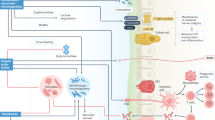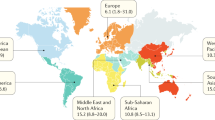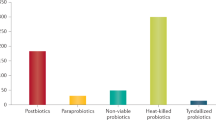Abstract
Objective: Because prelacteal feeds can adversely affect breastfeeding, UNICEF/WHO discourage their use unless medically indicated. The study was carried out to determine the proportion of healthcare workers who routinely give prelacteal feeds, and their reasons for doing so; further, to determine whether any differences exist between medically and non-medically trained healthcare workers in their administration of prelacteal feeds.
Design: Survey.
Setting: Primary, secondary and tertiary health facilities in Kaduna township Nigeria.
Subjects: Of 1100 healthcare workers sampled, 747 (68%) responded. Of these 80% had received medical training, 20% had not.
Methods: Use of a pretested validated questionnaire.
Results: Large proportions of both medical and non-medically trained healthcare workers stated they routinely give prelacteal feeds (doctors, 68.2%; nurses, 70.2%; and non-medical, 73.6%). However their reasons for doing so differed significantly (P=0.00001). Nurses gave mainly for perceived breast milk insufficiency, doctors for prevention of dehydration, hypoglycaemia and neonatal jaundice and non-medical staff to prepare the gastrointestinal tract for digestion and to quench thirst.
Conclusions: Most healthcare workers (medical and non-medical) routinely and unnecessarily give prelacteal feeds. Therefore training and retraining programmes in lactation management are necessary and must include non-medical staff. These programmes, while emphasizing the danger of giving prelacteal feeds, must deal with the misconceptions of each group. Deliberate efforts have to be made to incorporate clinical training in breastfeeding in curricula of Schools of Medicine and Nursing.
Sponsorship: UNICEF.
This is a preview of subscription content, access via your institution
Access options
Subscribe to this journal
Receive 12 print issues and online access
$259.00 per year
only $21.58 per issue
Buy this article
- Purchase on Springer Link
- Instant access to full article PDF
Prices may be subject to local taxes which are calculated during checkout
Similar content being viewed by others
References
Almroth SG, Bidinger PD . 1990 No need for water supplementation in exclusively breastfeed infants in hot and arid conditions Trans R. Soc. Trop. Med. Hygiene 84: 602–604
Ashraf RN, Jalil F, Khan SR, Zaman S, Kanbeng, Lindblad BS, Hanson LA . 1993 Early child health in Lahore, Pakistan V. feeding patterns Acta Paediatr. 82: (Suppl): 47–61
Badruddin SH, Bazmi Inain SN, Ramzanali S, Hendricks K . 1997 Constraints to appropriate breastfeeding practices in a squatter settlement in Karachi J. Pakistan Med. Assoc. 47: 63
Blomquist HK, Jonsbo F, Persson LA . 1994 Supplement feeding in the maternity ward shortens the duration of breast-feeding Acta Paediat. 83: 122–1126
Cunningham AS, Jellife DB, Jellife EB . 1991 Breast-feeding in the 1980s: a global epidemiology review J. Pediatr. 118: 659–666
Davies-Adetugbo AA . 1997 Socio-cultural factors and the promotion of exclusive breastfeeding in rural Yoruba communities of Osun State, Nigeria Soc. Sci. Med. 45: 113–125
Fidler K, Costello A . 1995 The role of doctors in influencing infant feeding practices in South India Trop. Doct. Oct. 25: 178–180
FMOH and USAID. 1990 Federal Ministry of Health and United Agency for International Development Nigeria Demographic and Health Survey Nigeria
Freed GL, Jones TM, Fraley JK . 1992 Attitudes and education of pediatric house staff concerning breast-feeding S. Med. J. 85: 483–485
Goldberg NM, Adams E . 1983 Supplementary water for breastfeed babies in a hot and dry climate—not really a necessity Arch. Dis. Child. 58: 73–74
Hawdon JM, Platt MP, Aynsley-Green A . 1993 Neonatal hypogycemia—blood glucose monitoring and baby feeding Midwifery 9: 3–6
Hossain MM, Radwan MM, Arafa SA, Habib M, Dupont HL . 1992 Prelacteal infant feeding practices in rural Egypt J. Trop. Pediatr. 38: 3l7–322
Hossain MM, Reves RR, Radivan MM, Habib M, Dupont HL . 1995 The timing of breast-feeding initiation and its correlates in cohort of rural Egyptian infants J. Trop. Pediatr. 41: 354–359
Ighogboja CV, Odumodu, Olanrewaju RS . 1996 Brief report. Breastfeeding pattern in Jos, Nigeria before baby friendly hospital initiative J. Trop. Peditr. 42: 178–179
Isenalumhe AE, Oviawe . 1987 Prelacteal feeds and breastfeeding problems Ind. J. Pediatr. 54: 89–96
Lipsky S, Stephenson PA, Koepsell TB, Glayd SS, Lopez L, Bain CE . 1984 Breastfeeding and weaning practices in New Mexico Nutr. Health 9: 255–263
Naylor AJ, Creer E, Woodward-Lopez, Dixon S . 1994 Lactation management education for physicians Sem. Perinatol. 18: 525–531
Ojofeitimi CO, Olaogun AA, Osokoya AA, Owolabi SP . 1999 Infant feeding practices in a deprived environment: a concern for early introduction of water and glucose D water to neonates Nutr. Health 13: 11–21
Okolo SN, Adewunmi YB, Okonji MC . 1999 Current breastfeeding knowledge attitude and practices of mothers in five rural communities in the Savannah Region of Nigeria J. Trop. Pediatr. 45: 323–326
Renfrew M, Lang S . 1997 Cochrane review. Early initiation of breast-feeding and its effect on duration WHO Reproductive Health library 2000 Number 3, pp 1–2 Geneva: WHO
Srinivasan G, Pildes RS, Cattamanchi G, Voora S, Lilien LD . 1986 Plasma glucose values in normal neonates. A new look J. Pediatr. 109: 114–117
Segura-Millian S, Dewey KG, Perez-Escamilla R . 1994 Factors associated with perceived insufficient milk in a low-income urban population in Mexico J. Nutr. 124: 202–212
Talukder MQ-K, Kawser CA, Hassan Q . 1997 State of breastfeeding and complimentary feeding in Bangladesh Dhaka: Bangladesh Brestfeeding Foundation
WHO. 1989 Evidence for the Ten Steps to Successful Breast-feeding Division of Child Health and Development. Document no. WHO/CHD/98.9 Geneva: WHO
WHO-UNICEF. 1990 Innocent Declaration on the Protection, Promotion and Support of Breastfeeding. Breast-feeding in the 1990s. A Global Initiative UNICEF, New York
WHO. 1996a Breastfeeding and the use of Water and Teas Division of Health and Development. Update no. 9, pp 1–2 Geneva: WHO
WHO. 1996b Not Enough Milk Division of Child Health and Development. Update no. 21, March, pp 1–4 Geneva: WHO
WHO. 1997 Hypoglycemia of the Newborn. Review of the Literature WHO/CHD/97.1, WHO/MSM/97.1 Geneva: WHO
Yamauchi Y, Yamanouchi I . 1990 Breast-feeding frequency during the first 24 hours after birth in full term neonates Pediatrics 86: 171–175
Acknowledgements
This study was sponsored by UNICEF Nigeria.
Author information
Authors and Affiliations
Rights and permissions
About this article
Cite this article
Akuse, R., Obinya, E. Why healthcare workers give prelacteal feeds. Eur J Clin Nutr 56, 729–734 (2002). https://doi.org/10.1038/sj.ejcn.1601385
Received:
Revised:
Accepted:
Published:
Issue Date:
DOI: https://doi.org/10.1038/sj.ejcn.1601385
Keywords
This article is cited by
-
Pre-lacteal feeding practice and associated factors among mothers having children aged less than six months in Dilla town, Southern Ethiopia
BMC Pediatrics (2024)
-
Barriers and facilitators for early and exclusive breastfeeding in health facilities in Sub-Saharan Africa: a systematic review
Global Health Research and Policy (2021)
-
Factors associated with prelacteal feeding in the rural population of northwest Ethiopia: a community cross-sectional study
International Breastfeeding Journal (2016)
-
Infant feeding practices among mildly wasted children: a retrospective study on Nias Island, Indonesia
International Breastfeeding Journal (2012)
-
Effectiveness of an implementation strategy for a breastfeeding guideline in Primary Care: cluster randomised trial
BMC Family Practice (2011)



